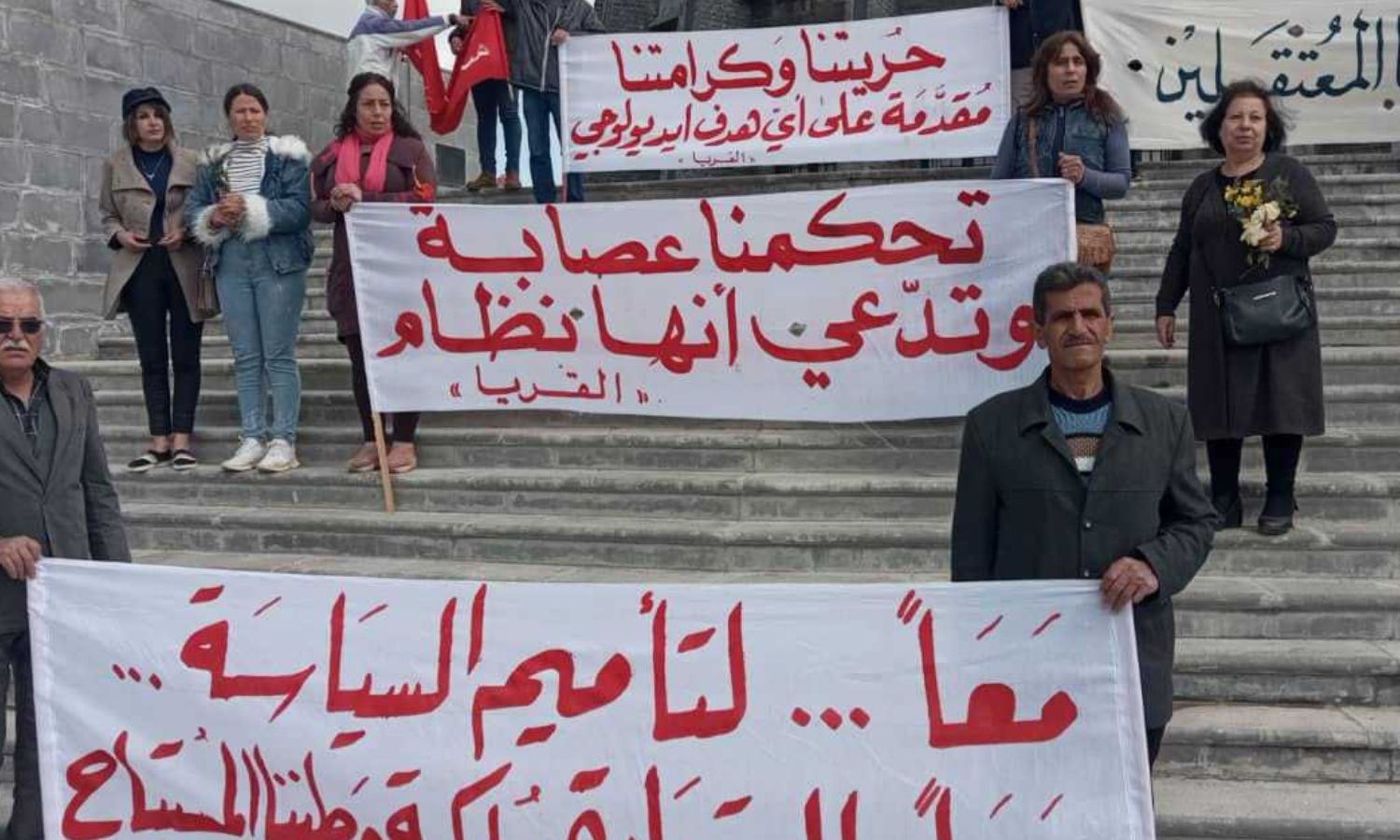The organizers of the “Three Regions” Initiative have officially launched a new Syrian body dedicated to political action, coordination, and national unity, named “Syrian Solidarity Action and Meeting.” This development, announced on Tuesday, August 20, marks a significant evolution of the “Three Regions Document” that was initially presented on March 8. The initiative has grown through extensive dialogues and meetings, culminating in the formation of the “Syrian Solidarity Action and Meeting.”
Solidarity Committee Representation:
The declaration for the Solidarity Committee has been endorsed by revolutionary institutions and activists from ten different regions in Syria. Among the signatories are the National Elite Group in Idlib, a coalition of revolutionary activists and democratic politicians from Idlib, the National Democratic Movement in the Golan, and the Hassakeh National Charter. Other signatories include the Homs Engineers Syndicate, the Free Homs Governorate Council, the Civil Movement Committee in Homs, as well as civil and social figures from Daraa al-Balad.
Establishing a Supreme Commission: A New Leadership for the Syrian Revolution
Additionally, the Syrian Council for Change in Daraa, the Political Committee in Deir Ezzor, the Raqqa National Charter, and dignitaries and the Federation of Professional Unions in northern Aleppo also signed the declaration. From the Syrian coast, the National Action Gathering endorsed the initiative, while in Sweida, groups such as the Qarya Town Movement, the Kafr Town Movement, the Social Committee for National Action, a group of women from Sweida, and the “Hadaf Movement” also participated.
Foundational Principles:
The Solidarity Authority is founded on seven key principles:
- Purely Syrian Initiative: It is a wholly Syrian initiative, with no involvement from non-Syrian entities. It does not represent a political organization, ideological entity, party project, or doctrinal concept, but rather serves as a national solidarity network.
- National Focus: The Syrian issue is framed strictly as a national matter, centered on the protection and well-being of the Syrian people. This includes safeguarding their lives and fostering conditions conducive to their political, economic, legal, and cultural development, which necessitates the removal of the current regime and the end of Assad’s rule.
- Syrian Ownership: Syrians must reclaim their national political agency, which is essential for advancing the liberation and foundational projects that began in 2011. The Solidarity Authority aims to harmonize national efforts to this end.
- Opposition to Regional Legitimization of the Regime: The Solidarity Authority firmly opposes any efforts by regional powers to re-legitimize the Assad regime or re-establish diplomatic relations with it.
- Coordination and Unity: The Solidarity Authority seeks to coordinate political actions across Syrian territories, rejecting any division of Syria. It advocates for a national approach to addressing local issues across all regions of the country.
Transition to Democracy: The political transition envisioned by the Solidarity Authority is fundamentally a transition to democracy, grounded in moral values, mutual respect, and an appreciation for diversity. This transition aims to achieve the principle of “unity in diversity,” where all groups recognize and respect each other, ultimately dismantling the Assad regime’s legacy.
National Coordination: The Solidarity Authority seeks to coordinate efforts across Syrian regions, fostering joint approaches to local problems. This coordination is a step toward achieving national unity, which will contribute to building an effective state and a political and moral framework for a national project strengthened by the collective will of the Syrian people.
Unifying Syrian Decision-Making:
Dr. Mudar Al-Debs, a political writer and one of the founders of the “Three Regions” initiative, emphasized the significance of establishing the “Syrian Solidarity for Work and Social Action.” He noted that this initiative plays a crucial role in coordinating political efforts among Syrians living under different authorities, unifying their approaches to various issues, and fostering solidarity in resolving them. Importantly, it underscores the ability of Syrians to operate independently of international oversight, reclaiming their agency over their decisions, destiny, and country.
Al-Debs elaborated to Enab Baladi that the Solidarity Authority is instrumental in breaking down the moral and political barriers that currently divide Syrian regions. This solidarity initiative spans from the far north to the far south, ensuring communication and cooperation across all of Syria, and aims to build national solutions to the local challenges these regions face.
He further highlighted that this solidarity challenges the notion that Syrians are incapable of progress without international support. Instead, it affirms that Syrians themselves are a powerful force capable of influencing the policies and decisions of other nations.
This article was translated and edited by The Syrian Observer. The Syrian Observer has not verified the content of this story. Responsibility for the information and views set out in this article lies entirely with the author.


